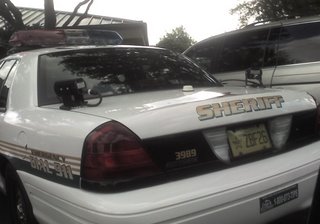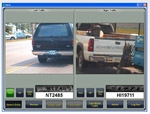I know that the articles that I am posting are a little old, but this one is revealing about the purpose of DUI checkpoints. These checkpoints are nominally put in place to “keep us safe” from drunk drivers. During the 2009 July 4th weekend in Gainseville, there were 1,131 vehicles stopped at the DUI checkpoint. How many DUI arrests were made? None. However, there were:
2 arrests for outstanding warrants
7 arrests for felony charges (6 of those for drugs)
1 arrest for misdemeanor charges
104 traffic tickets
20 warnings were written
In other words, 1% of the people stopped were arrested, and about 10% of them got tickets, and increased the coffers of the state treasury. These checkpoints are not about safety, they are about making an end run around the Constitution.
The police are not there to make us safe, they are there to take our money. I must admit that I have been the victim of a robbery once (when I was 19, the robber got $23) and I have been the victim of burglary twice (the burglars got a total of less than $500 worth of stuff).
The police have gotten far more than that from me, just in tickets, not counting the taxes I must pay to support them. How is an armed man stealing my money at gun point not stealing from me, simply because he wears a badge? Don’t tell me that if I wasn’t speeding that I wouldn’t get a ticket. There are enough laws out there that a cop can write you a ticket for nearly anything, and regardless of what they will have you believe, they DO have quotas, and they win prizes for writing tickets and busting people for DUI. Those prizes are in the form of cash awards and free vacations.


